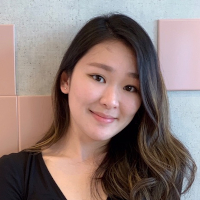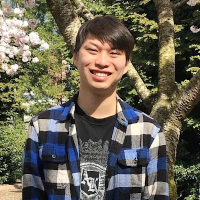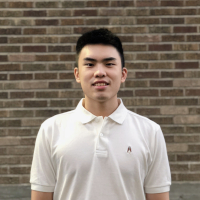Community Credit Lab (CCL) is an organization that partners with nonprofits and community organizations to find and create custom loan programs for underserved communities.

With limited staff and resources, however, the process of training partners is a major challenge — one that has consequences for the number of communities CCL can reach.
For their Capstone project, a group of Informatics students set out to address this problem by developing Community Courses, a centralized online platform to train and onboard new partners and investors.
The team is composed of seniors Michael Zhao, Janette Chow, Edward Halim and Andrew Tillotson. The group picked CCL as their sponsor because they felt the organization’s goals resonated with them.
“It sounded like their mission was very altruistic and helps in a time of need for a lot of underserved communities,” said Zhao. “And since a lot of us come from immigrant backgrounds — I’m a first-generation Chinese American, and two of my team members, both Janette and Edward, are both international students — we felt like our interests aligned with our sponsor’s goal.”

CCL, a Seattle-based nonprofit, uses credit to promote economic equity and remove barriers for people who face discrimination. For example, in a partnership with Highline College, CCL supports immigrants entering the college’s nursing certification program by offering zero percent interest loans.
The scope of the team’s project changed over time.
“Originally, they were thinking of going with a blog-style format, where they could post articles that train case managers,” said Zhao. “We decided that for the sake of information retention, we wanted to go with a course-style format. One of the benefits is that we’re able to gauge users’ progress through quizzes and certificates on completion of the course, so that gives CCL a way to ensure that the key points they want partners to know are reinforced.

“In the end, we had to downscale in terms of the functionalities we were able to provide because of time and resources on our end,” he added. “It’s good because it’s more streamlined and there’s less confusion on where the focus point of the application is.
Given current events, Community Courses is especially important for CCL.
“I think for the COVID-19 situation, our project means more for our sponsors because they are in need of an online platform that can do training as soon as possible,” said Chow.
The current public health crisis brought its own challenges for delivering on the project as intended.
“The biggest challenge was testing,” said Chow. “Instead of being able to meet with our sponsors and present the demo for them to try out in front of us, we had to do it over Zoom, which I don’t think is as effective as in-person.”

“I think going fully virtual definitely makes communication a lot more challenging, but also a lot more important,” added Zhao. “Especially in terms of accountability. It’s a lot harder to get a hold of certain people and make sure they’re meeting deadlines, but I think we did work pretty well virtually in terms of our task allocation. I think all of us are generally fine working alone and reaching out if we have questions.”
CCL is thankful for the team’s hard work.
“The Capstone team did a great job listening and tailoring the project to our needs,” said sponsor and CCL chief operating officer Ryan Glasgo. “We asked a lot of them and they worked really hard to create a solution for us.”